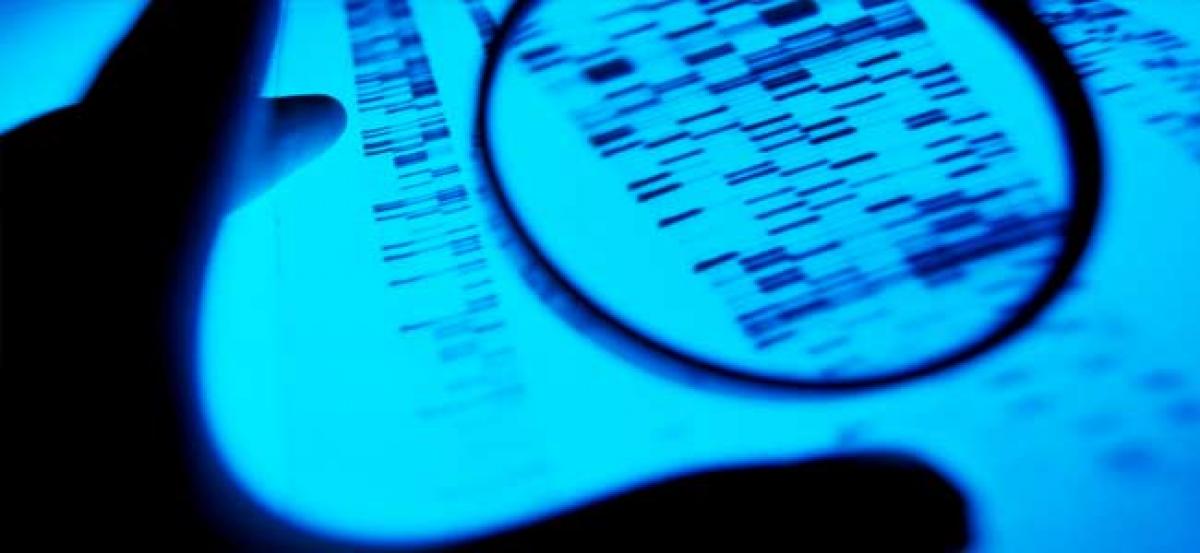Live
- NTR should be awarded Bharat Ratna, says CM
- Vizag mafia rules sand ramps in Srikakulam district
- Unselfishness is a Lie
- ICTPL welcomes maiden vessel MV KSL Fuyang
- BJP leaders mock Rahul's speech
- Analysing Happiness
- Two-day ToT organised for trainers
- Savarkar preferred Manusmriti to Constitution: Rahul
- Daily Horoscope for 15 December 2024: Embrace Today’s Insights of Your Zodiac Sign and Unlock Your Potential.
- Beyond The Flames
Just In
Suspected serial killer caught after relative shares DNA with genealogy websites


Think twice before you send companies your spit. A suspected serial killer was caught when investigators compared his DNA to samples collected by ancestry websites.
Think twice before you send companies your spit. A suspected serial killer was caught when investigators compared his DNA to samples collected by ancestry websites.
Services like 23andMe and Ancestry have become popular by using DNA from users who want to learn more about their family history. But few people think the DNA samples they send in might be used by law enforcement.
On Tuesday, Joseph James DeAngelo Jr. was caught by police. He's allegedly the "Golden State Killer," the perpetrator of 45 rapes and 12 murders throughout the '70s and '80s.
Obviously, if he's guilty, this guy should burn in the hottest of hells. In the wake of the Cambridge Analytica scandal, though, the way he was caught does raise some privacy questions.
Law enforcement compared a blood sample from the scene of a crime with DNA from one of DeAngelo's relatives, according to the Sacramento Bee. That's right. He wasn't even the one who used the ancestry websites —it was someone who was related to him.
That means you don't even have to consent to have your DNA available to law enforcement.
The Sacramento District Attorney's Office confirmed that the Bee's story was accurate, but wouldn't name the ancestry websites used by investigators to track down DeAngelo.
"It’s an ongoing investigation," Chief Deputy District Attorney Steve Grippi said in a statement provided to Mashable. "We have given you as much information as we can at this time. No further information on this subject will be provided."
Spokespeople from 23andMe and Ancestry said the companies were not involved in the DeAngelo case.
The former said it's "our policy to resist law enforcement inquiries to protect customer privacy." Ancestry said it "advocates for its members’ privacy and will not share any information with law enforcement unless compelled to by valid legal process."
There are other genealogy websites out there that collect DNA, but 23andMe and Ancestry are the most visible of those services — and they absolutely get requests from law enforcement for data.
Both release transparency reports. 23andMe claims it has never shared genetic information with law enforcement. Ancestry says it hasn't over the last three years, but did share data in 2014 with investigators looking into the murder and rape of a woman in Idaho.
Last year, Sen. Chuck Schumer called on the Federal Trade Commission to look into how companies that collect your DNA store and share your data.
"Now, this is sensitive information," he said, "and what those companies can do with all that data, our sensitive and deepest information, your genetics, is not clear and in some cases not fair and not right."
Source: techgig.com

© 2024 Hyderabad Media House Limited/The Hans India. All rights reserved. Powered by hocalwire.com






